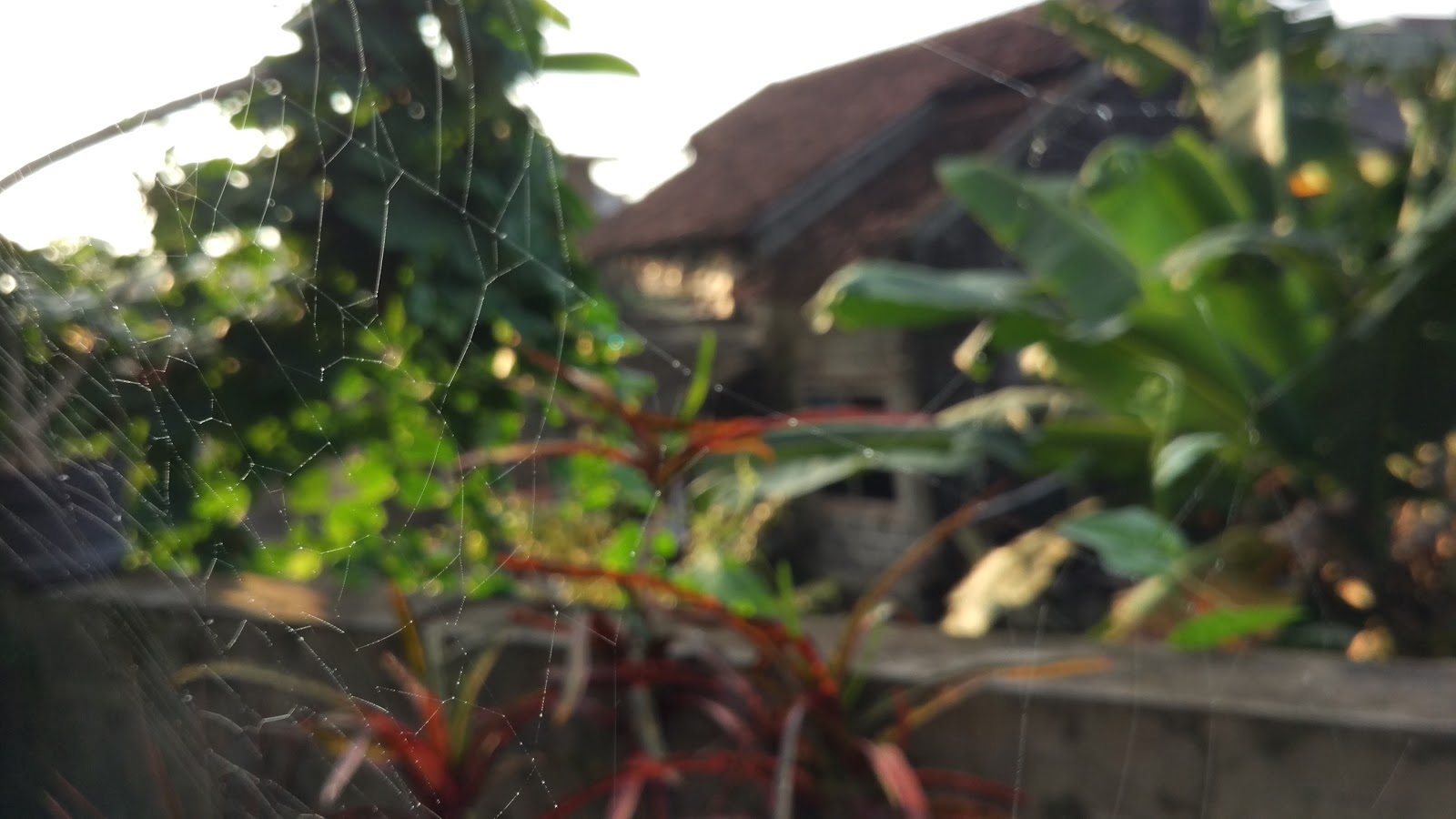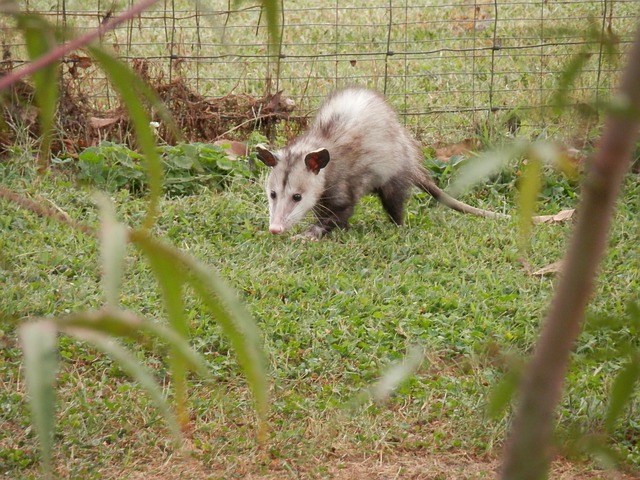Animals in the Garden
Gardens are a great way of adding a bit of nature back into your home. But, while you create more earthly elements in your habitat, you will also start to attract other living creatures. After all, grass is grass, and an animal doesn’t know the difference between a human’s property and the rest of the world. Here’s some different types of critter and creepy crawly that may find their way into your backyard, as well as a few ways to handle them when they decide to visit.



Spiders
Although humans have long become the dominant species, for some reason a good percentage of us still reel back in terror when it comes to spiders. Don’t worry, I’m just as guilty as the rest of you. But, like it or not, spiders are an essential part of the natural ecosystem. After all, without them, we never would have had Spider-Man, which is a world that I don’t want to live in. All jokes aside, spiders are very important as they keep more irritating bugs like flies and mosquitoes at bay, likely preventing numerous diseases with their eating habits. But that doesn’t mean we have to like having them in our garden. The best way to prevent this from happening is by creating an environment that isn’t ideal for their web-making shenanigans.
Spiders will build their web wherever suits them
Spiders love long, high-up structures which they use to string their webs across. Keep any long leaves and branches well trimmed to avoid stepping into a long sticky web the next time you walk through your garden. The other thing that spiders find a great place to hide is in small, dark spaces. Ensure that all objects in your garden such as plant pots, chairs, and ornaments are kept clean and out in the open to spare yourself a nasty eight-legged surprise. Follow these garden maintenance tips and you will – hopefully – rarely have to deal with spiders, however, generally they are very harmless until disturbed. Although we often forget it, the old adage is true and spiders are just as afraid of us as we are of them. Leave them alone, and they’ll return the favour.Possums
Definitely the least frightening animal on this list – some will even say cute – possums are still a nuisance in the garden. While we are spared the mangy visage of an opossum that Americans have to deal with, our furry little neighbours can cause a whole lot of difficulty (and noise) for our homes. They can also carry a lot of diseases, just like most rodents. Thankfully possums are only a problem – or really a presence at all – during the night. Possums are nocturnal and come out when it’s dark so no one will disturb them as they hunt for food. Unfortunately, their hunting activities are not very subtle and cause a lot of noise and disturbances. If the animals aren’t running on metal fences or over tin roofs causing clanging and banging, then they are often the target of other animals such as cats and dogs. Now, this doesn’t mean that they will actually do anything to stop them, possums are extremely quick and agile, able to climb up any structure with ease. Instead, this will only cause the usually quiet old Fido in the backyard to start barking and growling, capturing the attention of other pets and creating a cacophony of domestic animal cries all over the area. While it’s not possible to control what’s happening in other homes, you can make sure that it doesn’t start in your own backyard, keeping the noise you experience to a soft yelp in the distance. The best way to prevent possums from making their way into your property is to eliminate their hunting source with some general garden tidying. Possums are always on the lookout for food, usually in scraps. Possums aren’t picky eaters and usually find their meals inside bins or dumpsters where we have discarded what we didn’t use that week. This is where most of the noise comes from. Similar to raccoons in other regions, possums will burrow and scrounge their way into any open trash vessel.
Possums will often cross your lawn to get to their destination
Prevent them from doing so by keeping your bins shut nice and tight, making sure that they are never overfilled. Sooner or later the possums will realise that they can no longer access the food and move on to other unsuspecting homeowners, leaving fido with nothing to chase and peace and quiet once more. It’s also a good idea to make sure that there are no attractants anywhere else in the environment as well. At the end of the day go through your backyard (and front yard) to make sure that there are no bits of food or rubbish lying about that may make it a worthwhile visit from a family of possums. Not only will it prevent disturbances in the night, but it’s a good idea to keep your property clear and clean so as not to cause damage to the soil.Snakes
Most people in Australia are likely to receive a visit by a snake, especially if they live close to a river or creek. Snakes are one of the most difficult occurrences for the Australian homeowner, so we’re going to go pretty in depth on how to deal with them. While it may be a bit of a novelty to see one of these in the scaly flesh, snakes can be very dangerous and must be dealt with immediately. While not all snakes are deadly, some snakes are more dangerous than others, so if you find one in your garden the best course of action is to call an expert right away. Whether that is an exterminator of a snake handler, do not try and deal with the animal yourself, snakes need to be handled a very specific way and incorrect procedure can lead to getting bitten. However, If you do want to be more active in dealing with snakes, you should work on preventing them from visiting at all. There are a few conditions that snakes are attracted to, understanding and controlling the presence of these elements in your garden can keep it snake free. First off, snakes love water, or anywhere that provides a lot of moisture really. This is the reason for the aforementioned river connection. If your garden has it’s own fixture with a lot of water such as a pool or pond, then your garden is likely to attract snakes. Now, we’re not telling you to go through a complete garden landscaping procedure to get rid of your water features. Pools are great in the heat, it’s just that snakes like to be cool as well. As usual, prevention is the best method, and we suggest that you use a pool cover. Not only are they great for keeping the water clean and warm, but pool covers also keep out unwanted swimmers such as snakes. However, If a snake decides to come for a dip while the cover is off, it’s a good idea to have a plan in place. If you are in the pool, make sure that you and everyone else exits the water immediately, keeping a safe distance between yourself and the snake. Although it is best to call for assistance right away, it’s also a good idea to have a long stick or pole nearby. Use this to manoeuvre the animal from a safe distance as you wait for the professionals.
Snakes are even more likely to have a swim if there’s a spot to warm themselves nearby
The other thing that snakes love is grass, particularly grass that mimics its natural environment. For snakes, the longer the better. Snakes are naturally evolved to blend into their surroundings and it’s extremely difficult to spot one hiding in thick, overgrown grass. We always suggest that you keep your grass cut, and this is just another reason why. Particularly if you live in a snake-prone area, take out the lawn mower and give your grass a thorough cut at least every couple of weeks. This will ensure no unwanted treading and keeps your lawn looking clean and cared-for. For the harder to reach places such as bushes and shrubs we recommend using a brush cutter, or a pair of shears. Don’t cut it too short, just enough to eliminate any thick covering. If it is not possible to make your greenery short enough – perhaps due to aesthetics or time – then be sure that you exercise caution when moving near them. It is particularly important to keep an eye on young children or pets around thick plantations.